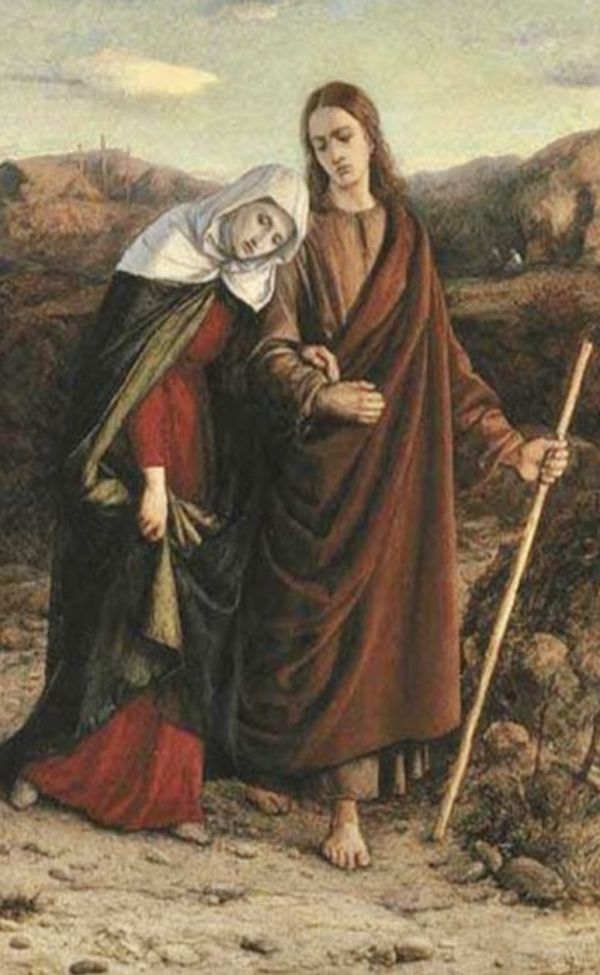(Jn 18:1-19,42)
The core of the Gospels do not dwell on the horror and sadism of torments, because they were not written for the purpose of impressing, but to introduce us into an understanding of the boundless intensity of divine Love.
In Jn there is no hint to the suffering mysticism and divine abandonment: the evangelist wants to accompany us on the same journey as the Son towards the Father's Glory.
Jesus is master of himself, doesn’t allow events to overwhelmed him.
He comes forward, he is still able to protect the disciples, and protagonist of the conversation with Pilate, a figure of the power of this world - who seems to be the accused.
Christ is not killed by the soldiers.
He’s Alive, despite the gendarmes placed to protect the ancient world which remains hostile to the Lord, in order to perpetuate itself.
The short passage in Jn 19:25-27 is perhaps the artistic apex of the Passion narrative.
In the fourth Gospel the Mother appears twice, at the wedding feast of Cana and at the foot of the Cross - episodes present only in Jn.
Both at Cana and beneath the Cross, the Mother is a figure of the «Remnant of Israel», that is, of the honestly sensitive and faithful people.
The 'bride-nation' of the First Testament is as if waiting for genuine Revelation: it perceives all the limitation of the ancient idea of God, which reduced the joy of the wedding feast between the Father and his sons.
Life that flows as an essential and vital lymph in the authentic Church depicted in Mary, adoring in every event; standing upright (19:25). Present to herself.
The Israel vibrant with truth originated the Passage from religiosity to spousal Faith, from ancient law to the New Testament.
In the presence of the Cross, an alternative Kingdom is generated.
Fathers and mothers of a different, non-belligerent humanity are being formed: proclaiming the Good News of God this time for the exclusive benefit of every woman and man - in whatever condition.
To those who already wanted to disregard the teaching of the ancient “fathers”, Jesus proposes to make past and newness walk together.
And the beloved disciple is icon of the authentic son of God, Word-event spread, and New Pact.
The son himself must receive the Mother [the presence and culture of the covenant people] at his Home: in the nascent Community.
Thus new family relationships flourish: then the Church is born.
«I thirst»: quotes Psalm 69 - «They put poison in my food and when I was thirsty they gave me vinegar».
It is the disappointment and giddy sense of emptiness for a humanity that is still in dire need of being torn from the wild condition…
And the intense desire to make, of that pre-human abyss, people who tend to recover divine Gold within themselves.
Therefore Jesus pours out his Spirit without any delay (v.30).
And as from the side of the man God drew the woman, so from the side of the pierced Son comes forth the ‘community-spouse’, related to the two signs of the first sacraments.
It is our essential and vital lymph: because immersed and assimilated in such familiar gestures, we overcome the discomfort of feeling like objects, things.
We become Sons.
[Good Friday, April 18, 2025]












